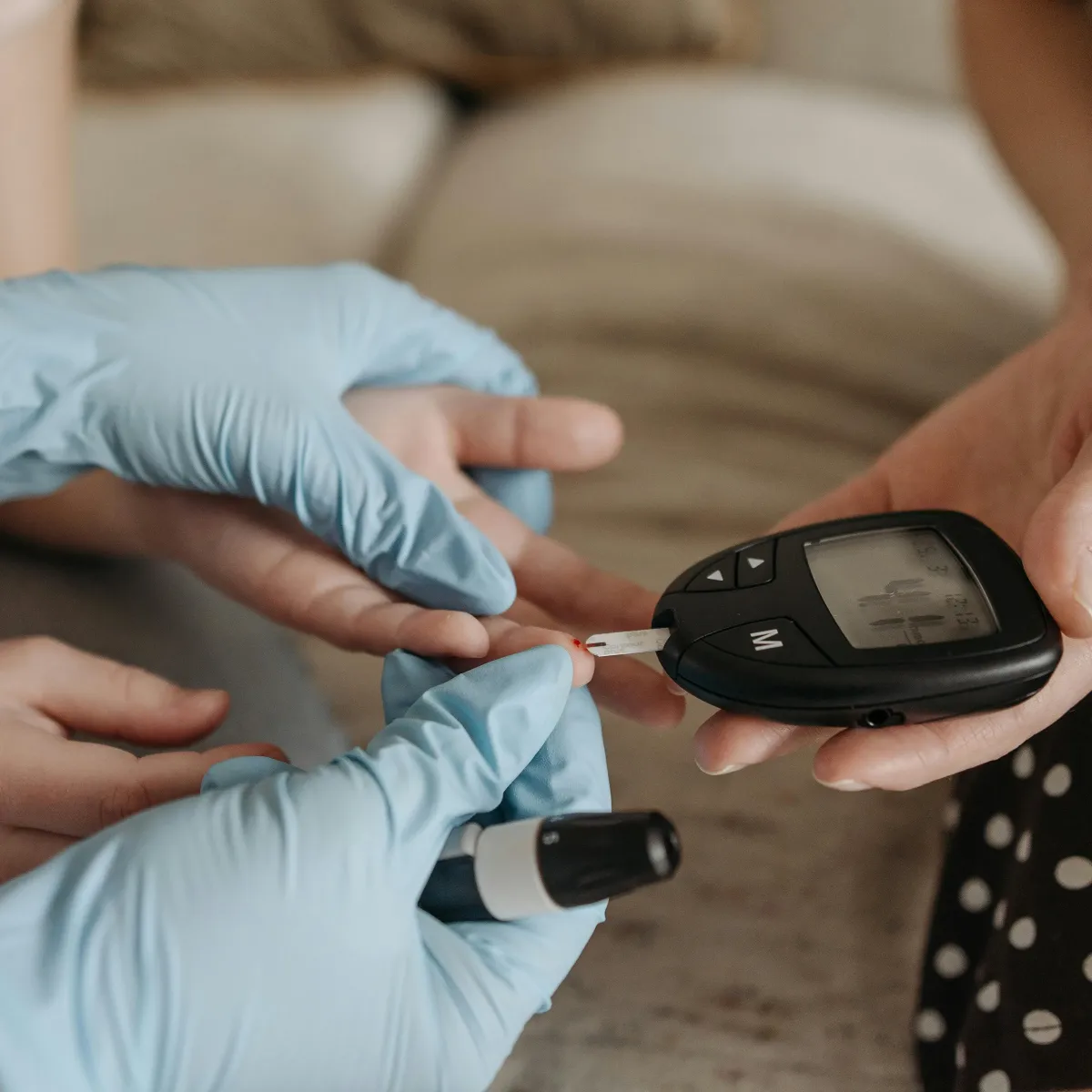Metabolic Issues
Metabolism refers to the complex biochemical processes that convert food into energy, regulate cellular function, and support essential physiological activities.
When this system is not functioning optimally, it can lead to symptoms such as low energy, weight changes, brain fog, and mood imbalances that ultimately affect overall health and performance.
Boost Metabolism and Improve Vitality
Boosting your metabolism can increase energy, focus, and overall vitality. It helps your body manage weight, repair itself, and remove toxins.
Addressing root causes like poor diet, inactivity, and stress—with simple habits like eating well, staying active, sleeping better, and reducing stress—can make a big difference.

The global prevalence of metabolic syndrome is estimated to be 20–25%.
Source: International Diabetes Federation (IDF)

Metabolic syndrome affects approximately 1 in 3 U.S. adults.
Source: National Heart, Lung, and Blood Institute (NHLBI), NIH

Poor diet is the leading risk factor for early death globally, surpassing smoking.
Source: The Lancet Global Burden of Disease Study, 2019
Common Conditions:
Poor Diet
Without the right balance of macronutrients (proteins, fats, and carbohydrates) and micronutrients (vitamins and minerals), the body may struggle to efficiently convert food into energy or maintain stable blood sugar and hormone levels.
Lack of Exercise
Movement helps increase muscle mass, which boosts resting metabolic rate, and enhances insulin sensitivity, blood flow, and oxygen delivery.
A sedentary lifestyle can contribute to metabolic slowdown.
Chronic Stress
Chronic stress impacts sleep quality, recovery, and causes elevated levels of cortisol—a hormone that, over time, can interfere with blood sugar regulation, fat storage, and thyroid function.
Genetic Predisposition
Genetics can influence various aspects of metabolism, including how efficiently the body burns calories, stores fat, and responds to hormones like insulin.
While genetics set the baseline, environmental and lifestyle factors still play a significant role in how these inherited tendencies manifest over time.


Common Symptoms:
Weight Gain
Unexplained or gradual weight gain may occur when the body begins to store more energy than it uses.
A slowed metabolism can make it harder to burn calories efficiently, even if eating and activity habits haven’t changed significantly.
Fatigue
Persistent tiredness or low energy can be a sign that your body isn't producing or utilizing energy effectively.
This may be due to impaired mitochondrial function, poor nutrient absorption, or hormonal imbalance affecting energy regulation.
Sugar Cravings
Frequent cravings for sweets or simple carbohydrates can indicate unstable blood sugar levels.
When energy production is inefficient, the body may seek quick sources of glucose, leading to a cycle of craving, consumption, and energy crashes.
Sluggishness
Feeling mentally and physically slow—such as having difficulty focusing, slow reflexes, or low motivation—can be linked to reduced cellular energy output, poor sleep quality, and disrupted neurotransmitter activity, all commonly associated with a sluggish metabolism.
Common Myths & Facts
❌Myth: Only overweight people have metabolic issues.
✅ Fact: Even people with a “normal” weight can have insulin resistance, high blood sugar, or non-alcoholic fatty liver disease (NAFLD).
❌Myth: Metabolic rate is the same for everyone.
✅Fact: Metabolism varies by genetics, age, muscle mass, and lifestyle. It’s not one-size-fits-all.

Our Approach
We address nutrient deficiencies, lifestyle factors, and hormonal health to optimize fertility naturally.

Identify Root Causes
& Triggers
We conduct a comprehensive health assessment, including a deep dive into medical history, lifestyle, and symptoms.
This helps us uncover potential triggers such as dietary sensitivities, stress, environmental toxins, infections, and genetic predispositions that may be contributing to autoimmune dysfunction.

Advanced Testing
& Analysis
We utilize cutting-edge functional lab tests to gain deeper insights into immune imbalances, gut health, inflammation markers, hormonal disruptions, and toxin exposure.
These tests help us pinpoint underlying factors driving autoimmune responses and guide personalized interventions.

Personalized Healing
Plan
Based on the findings, we create a customized protocol that includes targeted nutrition, gut healing strategies, stress reduction techniques, detox support, and natural supplementation.
This approach focuses on reducing inflammation, supporting immune function, and restoring overall balance for long-term wellness.

Holistic doctor Dr. Charlie Ware blends acupuncture, functional medicine & diagnostics to help you heal pain naturally and uncover the root cause of chronic diseases.
Dr. Ware’s clinic is located in Pompano Beach, Florida. He offers in-person visits throughout South Florida and virtual services across the U.S.

